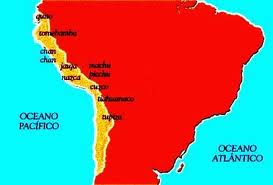
September 2, 2011 | by Elyssa Pachico
The following is adapted from two articles on recent developments in Peru and Colombia I wrote for Insight Crime, a web-based resource on organized crime in the Americas that receives support from the Open Society Latin America Program. It highlights the work of two Open Society Foundations grantees, the Washington Office of Latin America and the Transnational Institute, and notes the recent appointment of Ricardo Soberon, former Open Society Foundations grantee, as Peru's drug czar. Recent developments in Peru and Colombia are promising indicators that progressive drug policy reform is advancing in the Andean region. Peru's suspension of U.S.-funded coca eradication efforts may have lasted no longer than a week, but it was the first real indication that President Ollanta Humala is more than willing to make bold changes to the country's drug policy. Coca eradication is widely understood as an ineffective means to control world cocaine supply.
The case of Peru does little to contradict the argument: despite ongoing efforts, the amount of land under coca cultivation has grown steadily since 2007, according to the United Nations Office on Drugs and Crime (UNODC). In the Alto Huallaga Valley, which has Peru's second-highest concentration of coca crops, forced eradication is deeply unpopular and each year results in violent clashes with the police. Meanwhile, a voluntary eradication program, created jointly with the coca growers, or "cocaleros," in 2003, has seen some success, with tens of thousands of these farmers now growing legal crops, according to the U.S. State Department. But this has done little to slow the overall trend of increasing production, which, if it continues, could grab Peru the top spot as the world's number one coca grower.
The decision to rethink the eradication campaign in the Alto Huallaga may have been spurred by the recent appointment of drug policy analyst and lawyer Ricardo Soberon as head of Peru's anti-narcotics advisory body, known as DEVIDA. Soberon has made no secret of his progressive views on coca politics, and has talked about promoting a "reduction" rather than eradication policy
In Colombia, the Supreme Court ruled against harsh punishments for small-time drug offenders, in a move towards easing up Colombia's zero-tolerance drug laws, which have achieved little in the fight against organized crime. The court ruling, issued August 24, 2011, goes against a legal decree which essentially prohibited drug possession and consumption in Colombia. After the Constitutional Court ruled in 1994 that users can keep small doses of drugs for personal consumption, the administration of President Alvaro Uribe reversed the decision with a constitutional amendment in December 2009. Under the terms of the amendment anyone caught with drugs in Colombia could go to prison.
However, as El Tiempo reported, on August 24 the Supreme Court found that the 2009 amendment violated "personal freedoms." The new ruling essentially reaffirms the right of Colombians to carry the "minimum dose" of drugs, as laid out by the Constitutional Court in 1994. But even if the 2009 reform is revoked, Colombia will still have some of the most repressive drug policies in the region.
According to a 2010 study by the Washington Office on Latin America (WOLA) and the Transnational Institute (TNI), few of those detained for drug-related crimes can be considered high-level offenders: that is, the majority of them are small-scale distributors and cultivators, who occupy the bottom rung of the drug-trafficking hierarchy. Although data from Colombia's main prison authority, known as INPEC, is limited, the report surmises that up to 98 percent of the detainees charged with drug crimes may be small-time offenders.
The Supreme Court's ruling comes amid renewed debate over how to reform Colombia's prison system, which is desperately overcrowded and staffed with corrupt guards. The rate of overcrowding in Colombia's prisons reached nearly 39 percent in 2009, much of it due to the excess number of small-time drug offenders, according to the WOLA and TNI report [PDF]. A less punitive drug policy would ease pressure on the prison system and allow the security forces to focus on large-scale traffickers.
Other countries in the region have been inching towards a relaxation of their drug laws. In Argentina, even though the increased availability of crack cocaine derivatives is becoming a serious problem, the Supreme Court moved towards more relaxed possession laws, most notably in an August 2009 ruling. Around the same time, Mexico passed the Law Against Retail Drug Dealing (Ley de Narcomenudeo), which mandated drug treatment programs for those caught carrying small quantities of drugs. The most progressive legislation is found in Uruguay, where drug use and possession is not a criminal offense under law.
The changes in Peru and Colombia are small but encouraging steps bringing the region closer to the Global Commission on Drug Policy’s recommendation to end the punishment of drug users who "do no harm to others."
Nenhum comentário:
Postar um comentário